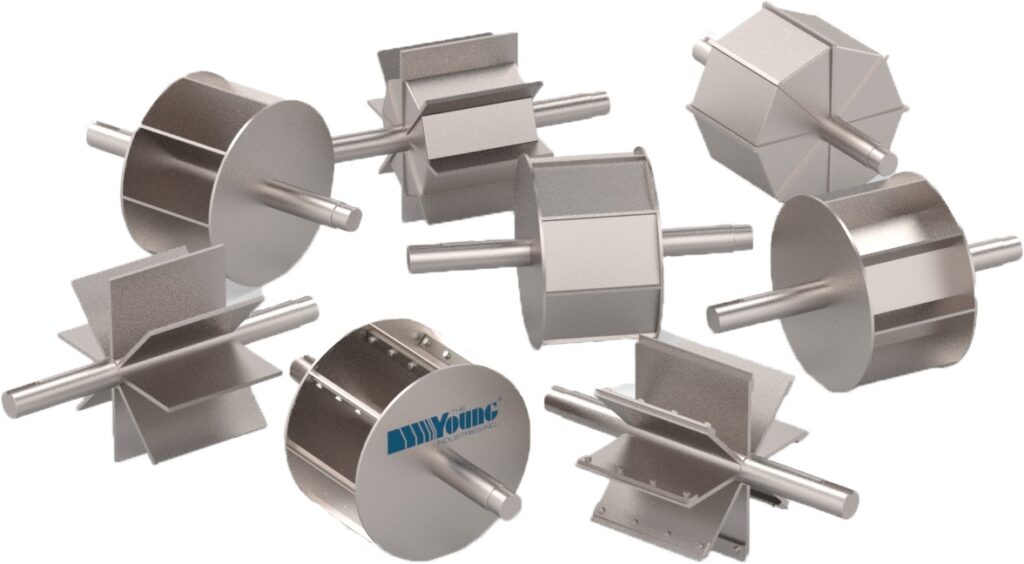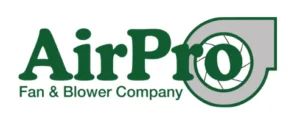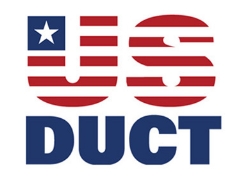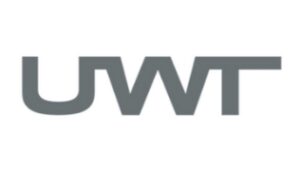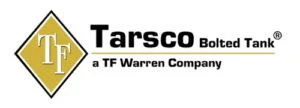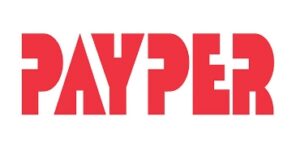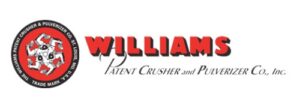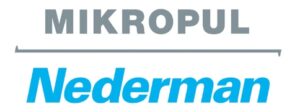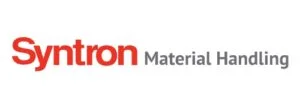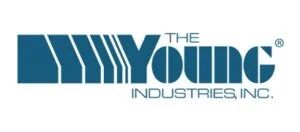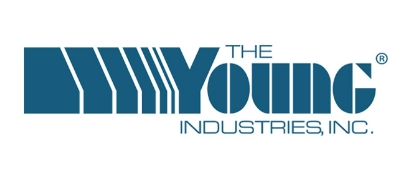
Rotor Types
Several of our rotor types are offered in two different designs. They are the open-end and closed-end (shrouded) rotor designs. With the open-end design, the blades are welded directly to the rotor shaft. With the closed-end (shrouded) design there are additional discs welded to the shaft and blade ends. Each design has application advantages and disadvantages. Explore the various rotor types we offer below.
Type "A" Rotor
The Type “A” rotor is used for the majority of applications. It has deep pockets. Hence, it has the maximum volumetric capacity. This rotor is used for either air locking or feeder applications. Type “A” rotors have the lowest air or gas leakage and is the least expensive to build. The Type “A” rotor is good for handling free flowing to slightly cohesive products with narrow particle sizes distribution. It’s not the best for handling any abrasive products.
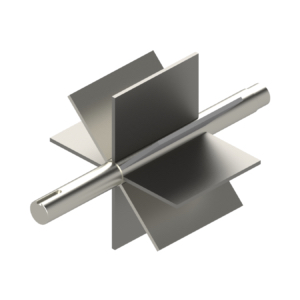
Type "AS" Rotor
The Type “AS” rotor has deep pockets and a closed ends. This rotor is used for either air locking or feeder applications. It is better for handling products having a wide particle. Because of the shroud plate it is better for handling slightly abrasive products. The Type “AS” rotor is not the best for handling cohesive materials.
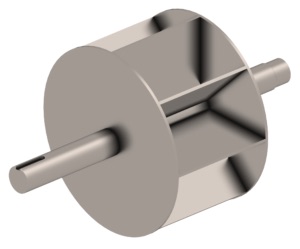
Type "B" Rotor
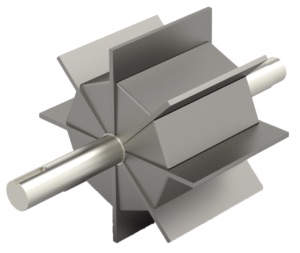
Type "BS" Rotor
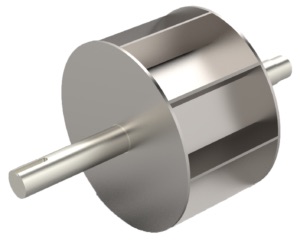
Type "C" Rotor
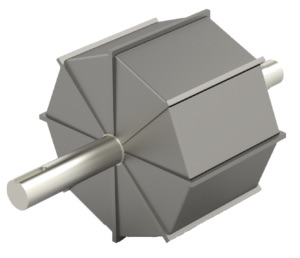
Type "CS" Rotor
The Type “CS” rotor is designed with filled rotor pockets and shrouded ends. The pockets are shallower than a Type “BS” rotor. This rotor is used for feeding difficult flowing cohesive and slightly abrasive products. The shallower pockets aid in the discharge of the cohesive materials.
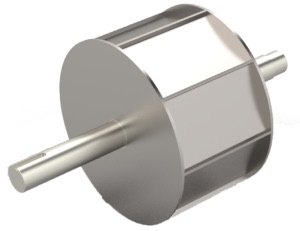
Type "D" Rotor
The Type “D” rotor has adjustable tips. This rotor is used for either air locking or feeder applications. It can be furnished with filled pockets similar to the “B” and “C” rotor types. The tips can be adjusted to compensate for rotor tip wear. When flexible tip material is used, the type “D” rotor is the best rotors to use when handling fibrous material.
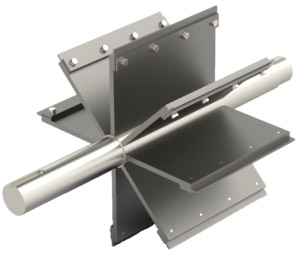
Type "DS" Rotor
The Type “DS” rotor has adjustable tips with closed ends. This rotor is used for either air locking or feeder applications. With the end shrouds and adjustable tips, this rotor is a good choice for handling slightly abrasive products. The tips adjustment can compensate for rotor tip wear. When Urethane flexible material is used, the type “DS” rotor is the best rotor to use when handling fibrous material that is somewhat abrasive.
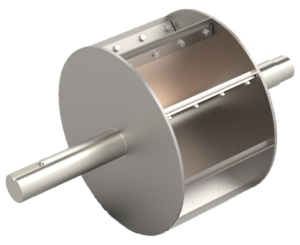
Type "D3" Rotor
The Type “D3” rotor has adjustable tips and ends. This rotor is used for either air locking or feeder applications. The Type “D3” rotor is the best rotor to use when handling fibrous material. The tips can be adjusted to compensate for rotor tip and end wear.
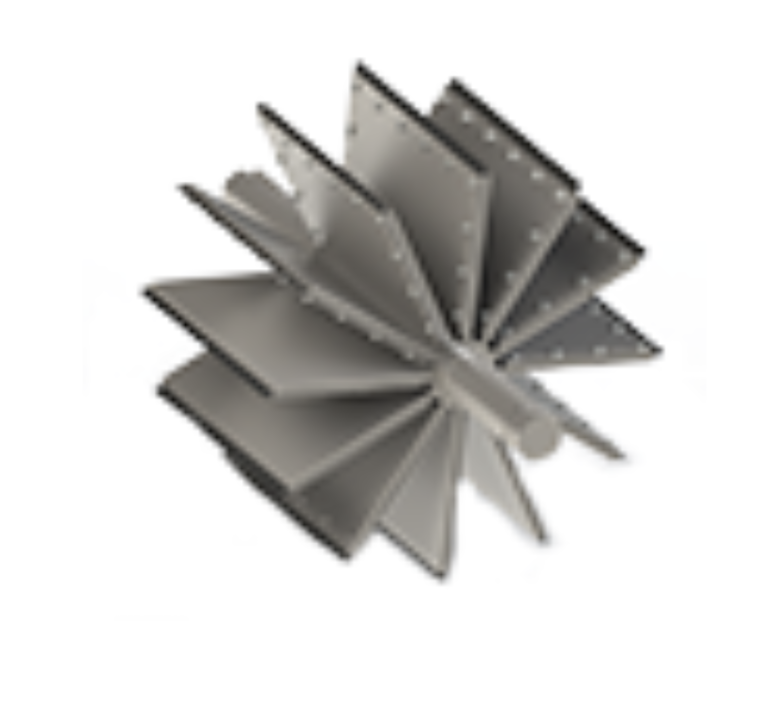
Important Information
Media & Case Studies
INTRO: Rotary Valve – Model BT – Blow-Thru Airlock
8” Blow Thru Rotary Valve with 4” Convey line is used for handling inorganic chemical powders. The Blow Thru design assures positive discharge of the fine cohesive powder.
DEMO: RNHC Rotary Valve
This Drop-Thru Rotary Valve is specifically designed to meter pellets or prilled products without shearing the material.
REVIEW: Rotary Valves – Model QC & CA
Young Industries offers a wide variety of sanitary rotary valves. This video shows how easy it is to access and clean the valve with the cantilever rotor design.
INTRO: Rotary Valves – Model ES – End Seal
Young Industries patented End Seal Rotary Valve reduces air leakage due to differential pressure by up to 50%. The self-adjusting end seal eliminates axial leakage around the rotor.
GUIDE: Rotary Valves – Model QC – Disassembly
Young Industries line of Quick Clean Rotary Valves require no tools for rotor removal. Larger valves are now offered with a rotor extractor to make rotor removal easy. The extractor is used in the video.
